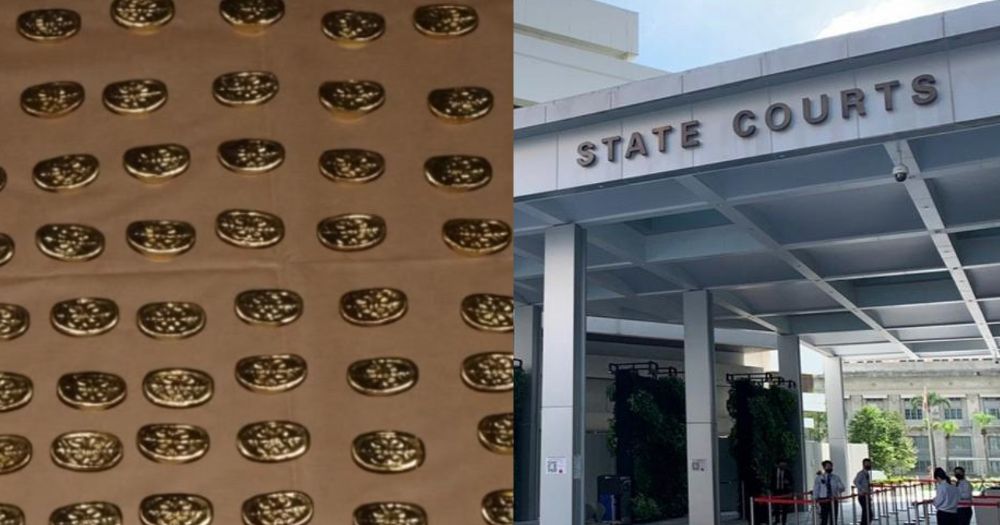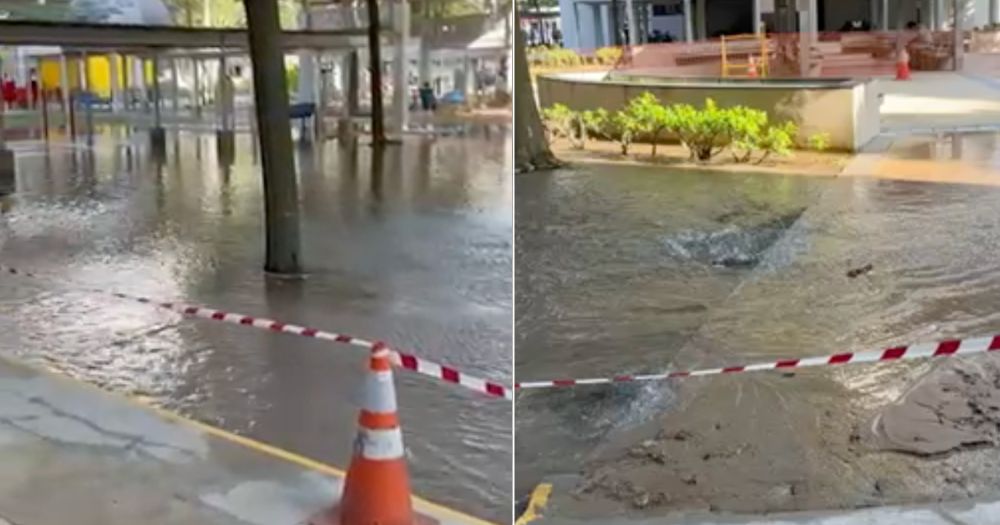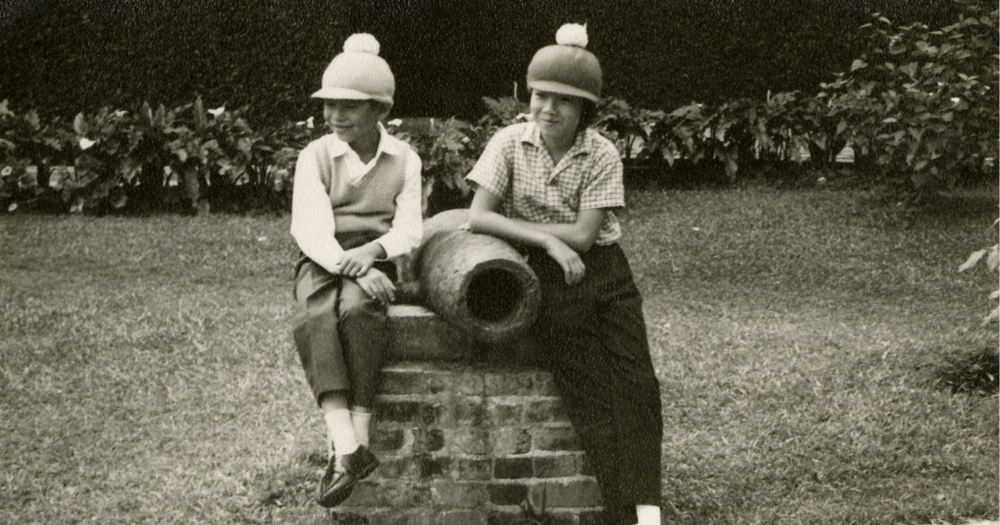2 independent experts say mould problem at NTU's S$125 million Gaia building due to 'condensation & rain', not timber
The university will undertake measures for mould removal and prevention.
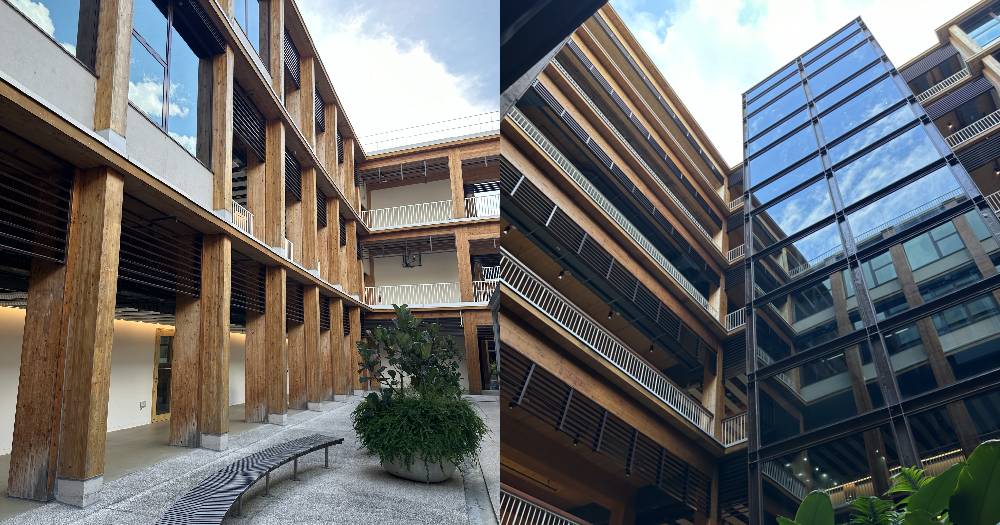
An assessment was conducted by two independent experts – Associate Professor Tham Kwok Wai and Associate Professor Shinya Okuda – who determined that condensation and exposure to rain were the primary causes of the mould issue at Nanyang Technological University (NTU)'s Gaia building.
Both professors are from the College of Design and Engineering at the National University of Singapore, and were not involved in the building of Gaia.
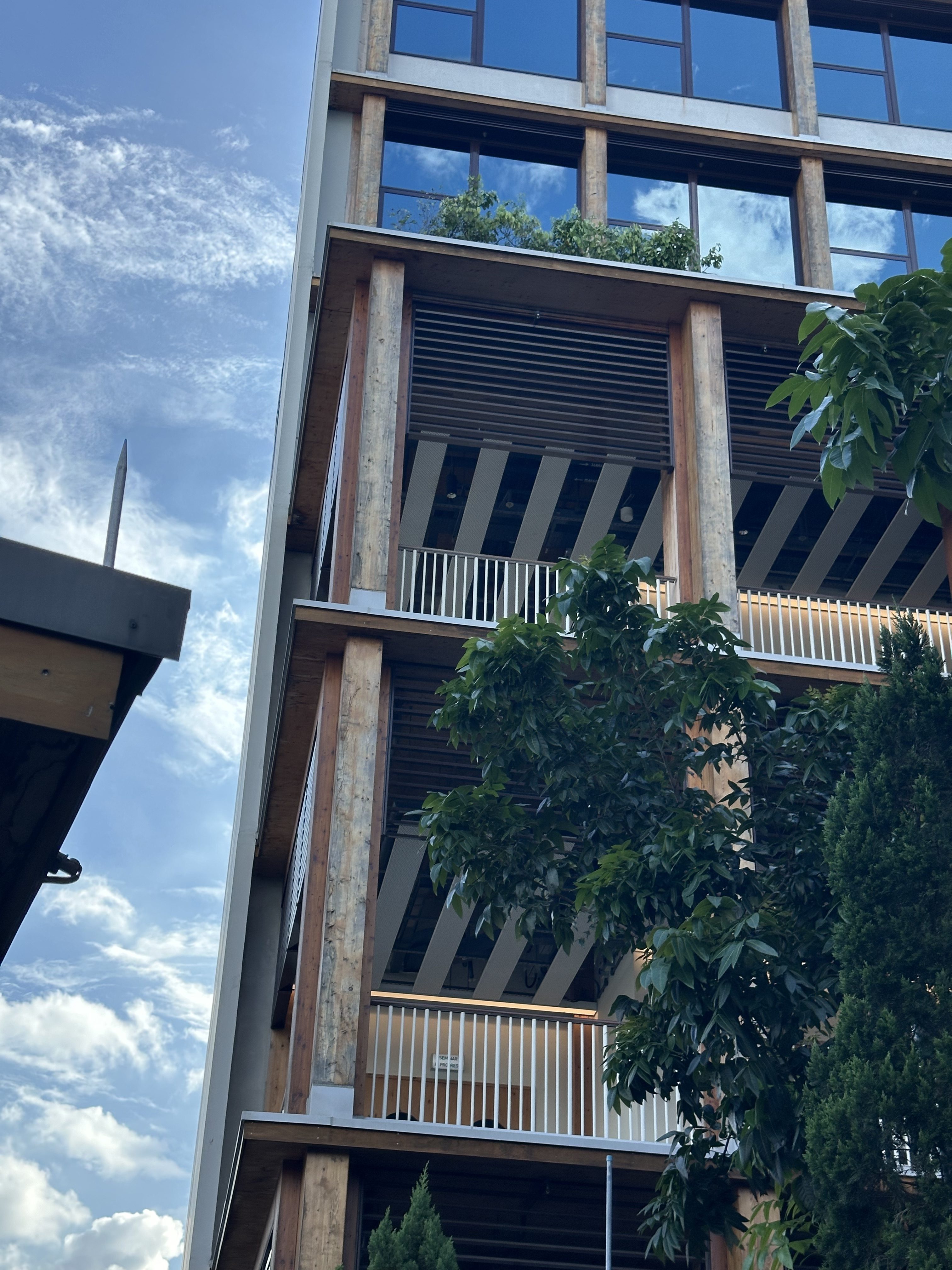 Photo via Ruth Chai
Photo via Ruth Chai
The mould was mostly found on the air-conditioning supply grilles and furniture surfaces in the affected rooms.
The mass engineered timber used in Gaia's construction did not contribute to the mould growth, as the timber met certified regulatory standards and is treated with protective sealants.
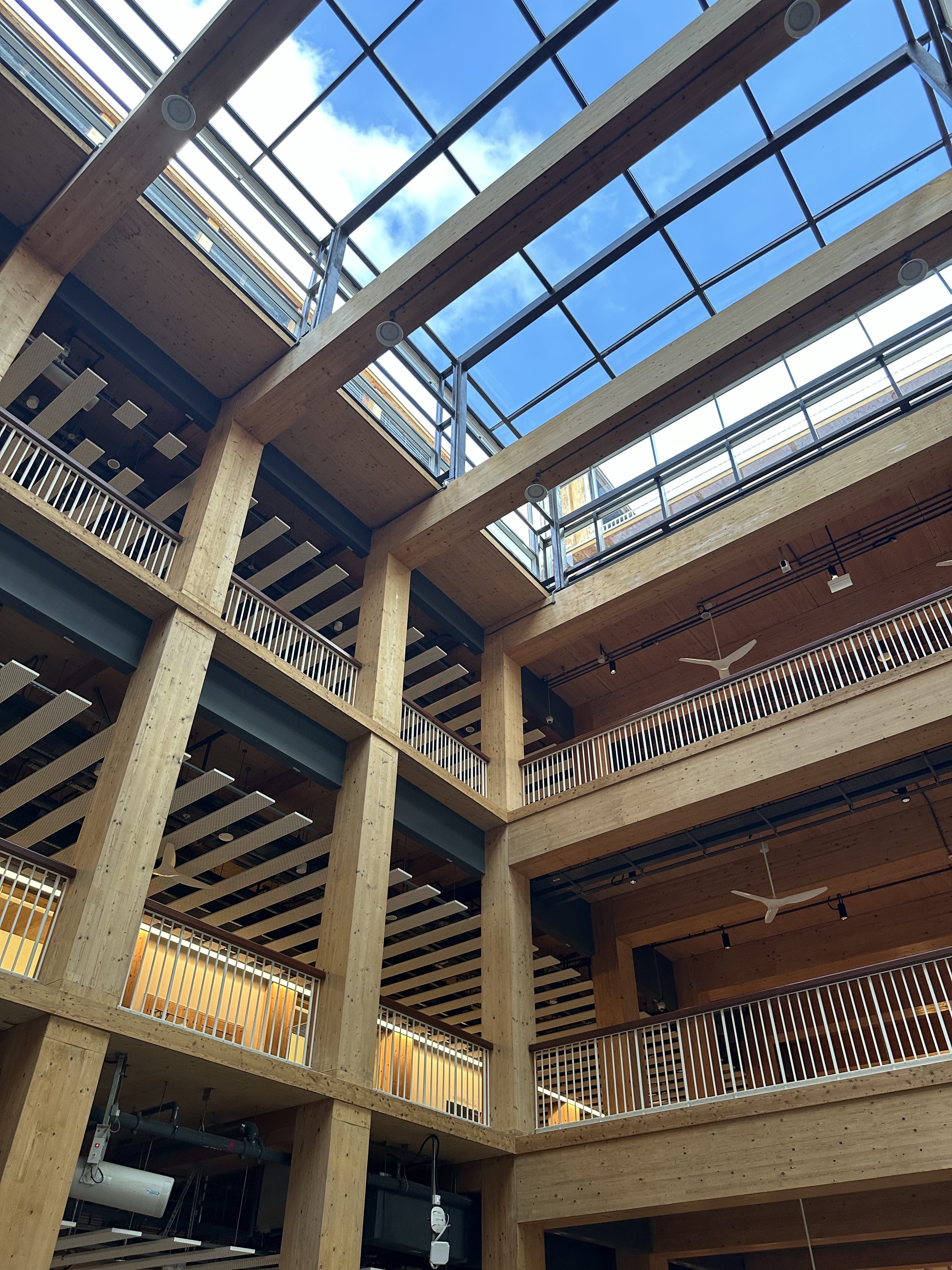 Photo via Ruth Chai
Photo via Ruth Chai
"The timber elements of Gaia are coated to reduce porosity, which should help mitigate mould growth. However, coatings generally require periodic maintenance," said Okuda.
“The mould growth observed on the exterior timber cladding is due to exposure to direct rain, but the trial sanding that I saw on site shows that mould has not penetrated the timber structure.
The long-term mitigation of mould growth involves maintaining a drier environment, reducing condensation and limiting direct rain exposure overall.”
Tham said that mould is pervasive in Singapore due to the warm tropical climate and can grow on any surface if the environment is conducive, such as dark, damp and poorly ventilated areas.
NTU said they accepted and will implement several sustainable maintenance approaches suggested by Tham.
Respiratory concerns
Several students have also expressed concerns over inhaling fungal spores from the mould.
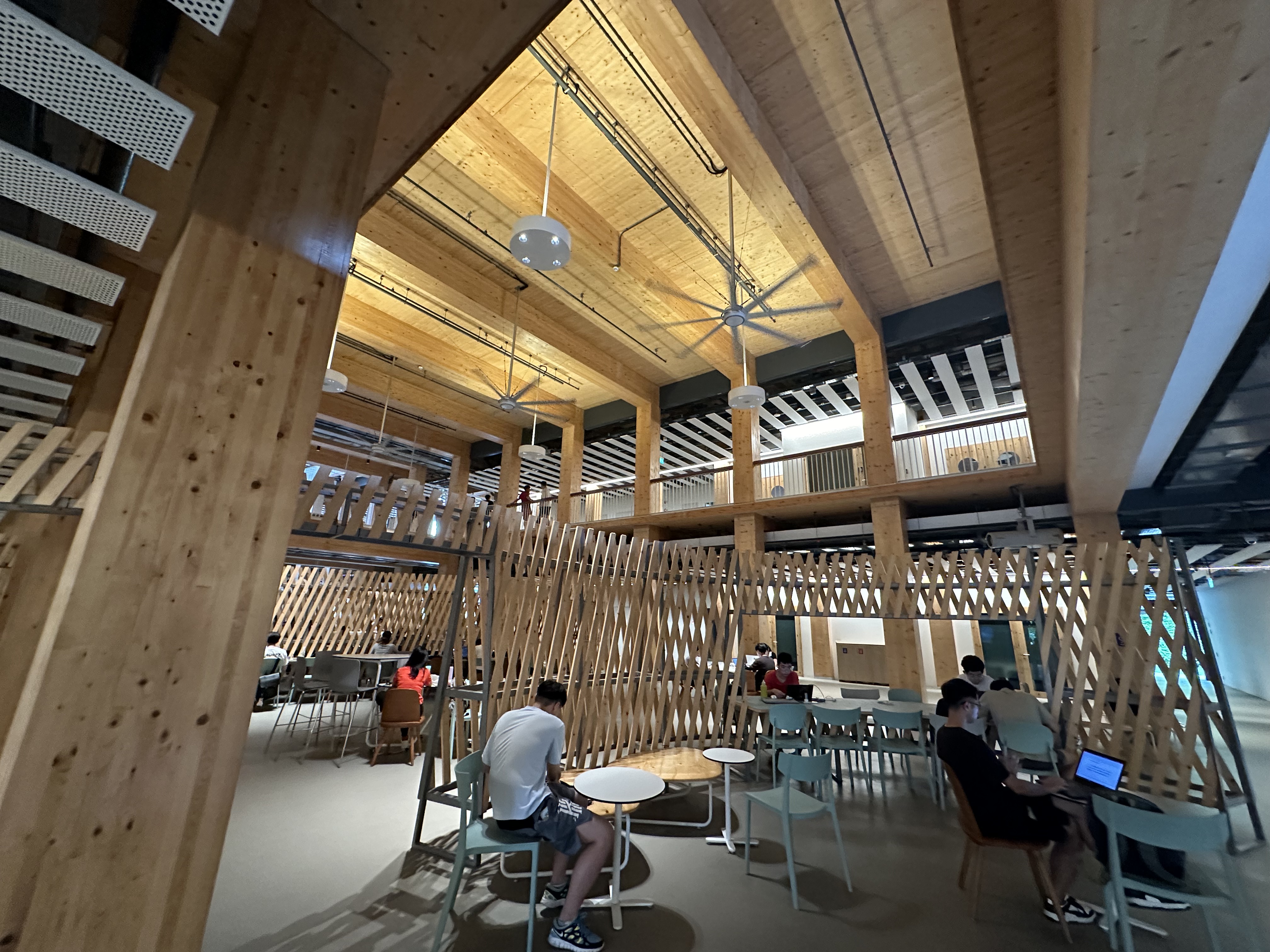 Photo via Ruth Chai
Photo via Ruth Chai
However, respiratory disease and immunology experts said that as the immune system normally clears any inhaled fungal spores, healthy individuals are unlikely to experience issues with mould exposure.
The school plans to activate the air conditioning system ahead of classes and working hours in the morning to help ventilate the rooms and reduce potential odours.
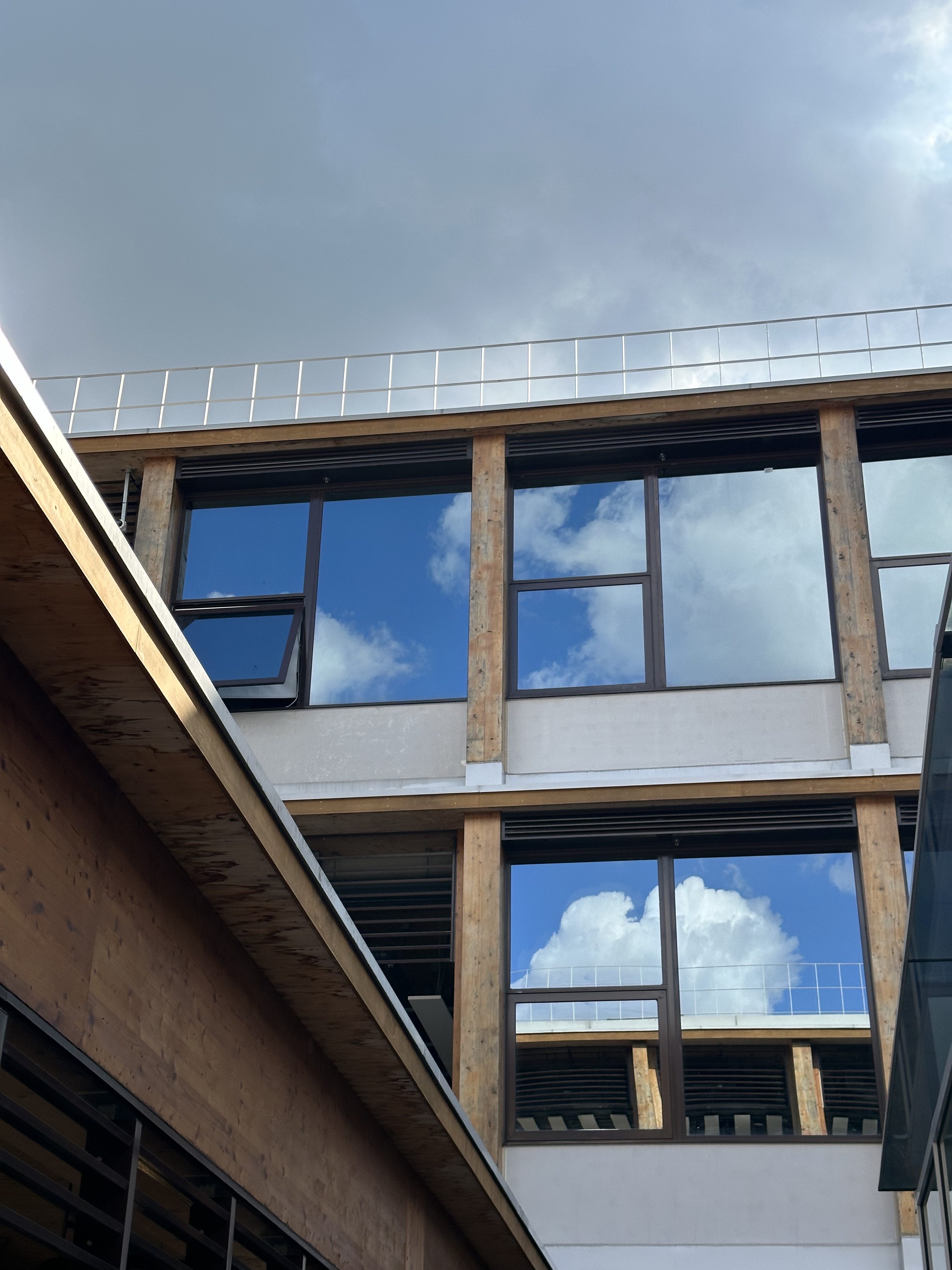 Photo via Ruth Chai
Photo via Ruth Chai
The new measures will be calibrated carefully to ensure sustainable energy consumption, the school said.
NTU will address the Gaia building's mould issue through daily cleaning, periodic maintenance, and mould remediation efforts.
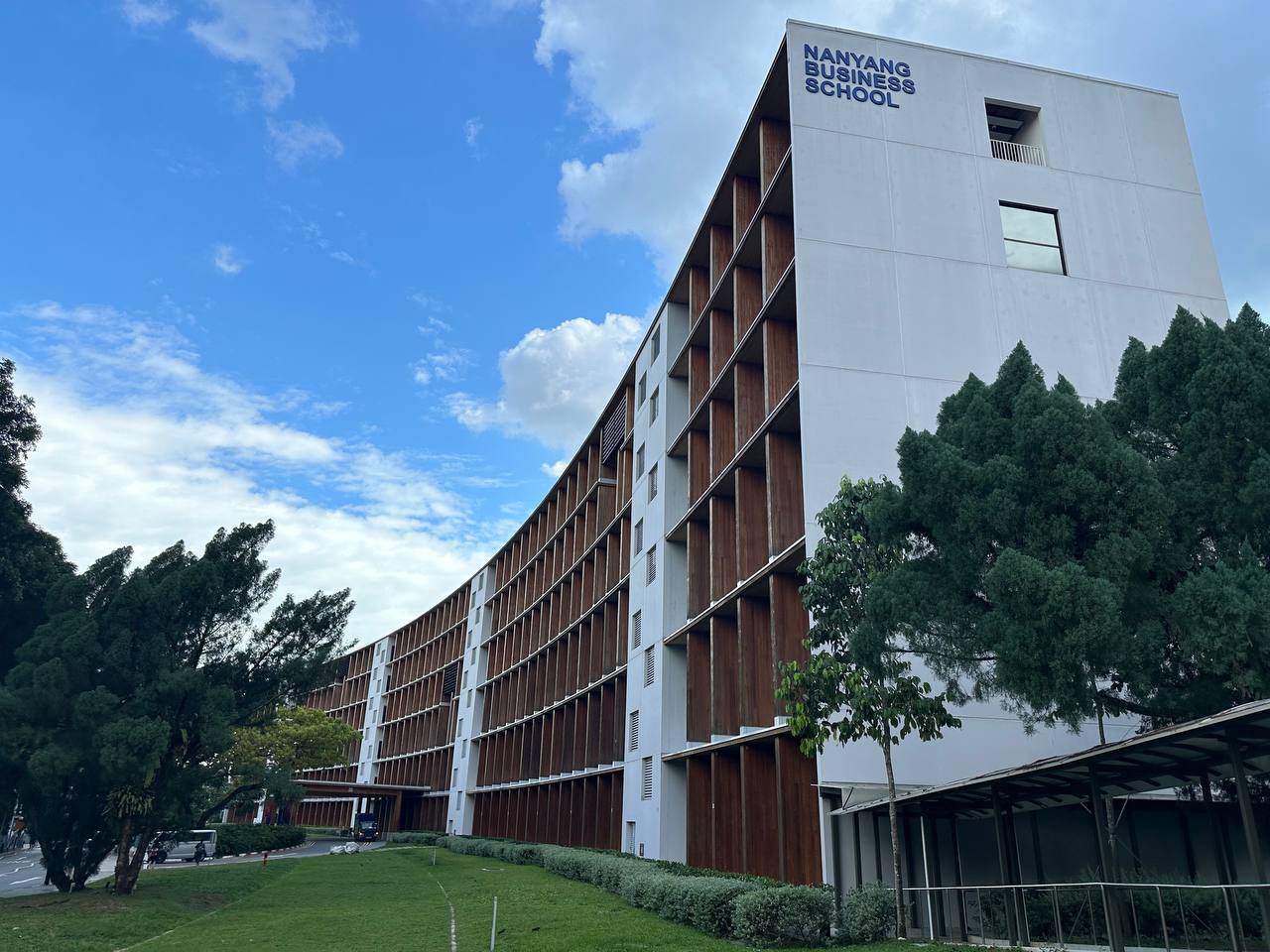 Photo courtesy of Ruth Chai
Photo courtesy of Ruth Chai
Over the next three weeks, rooms and spaces at Gaia that are affected by the mould will undergo chemical cleaning, followed by mould testing, to ensure the mould is eradicated, the school said in a press release dated Aug. 28, 2024.
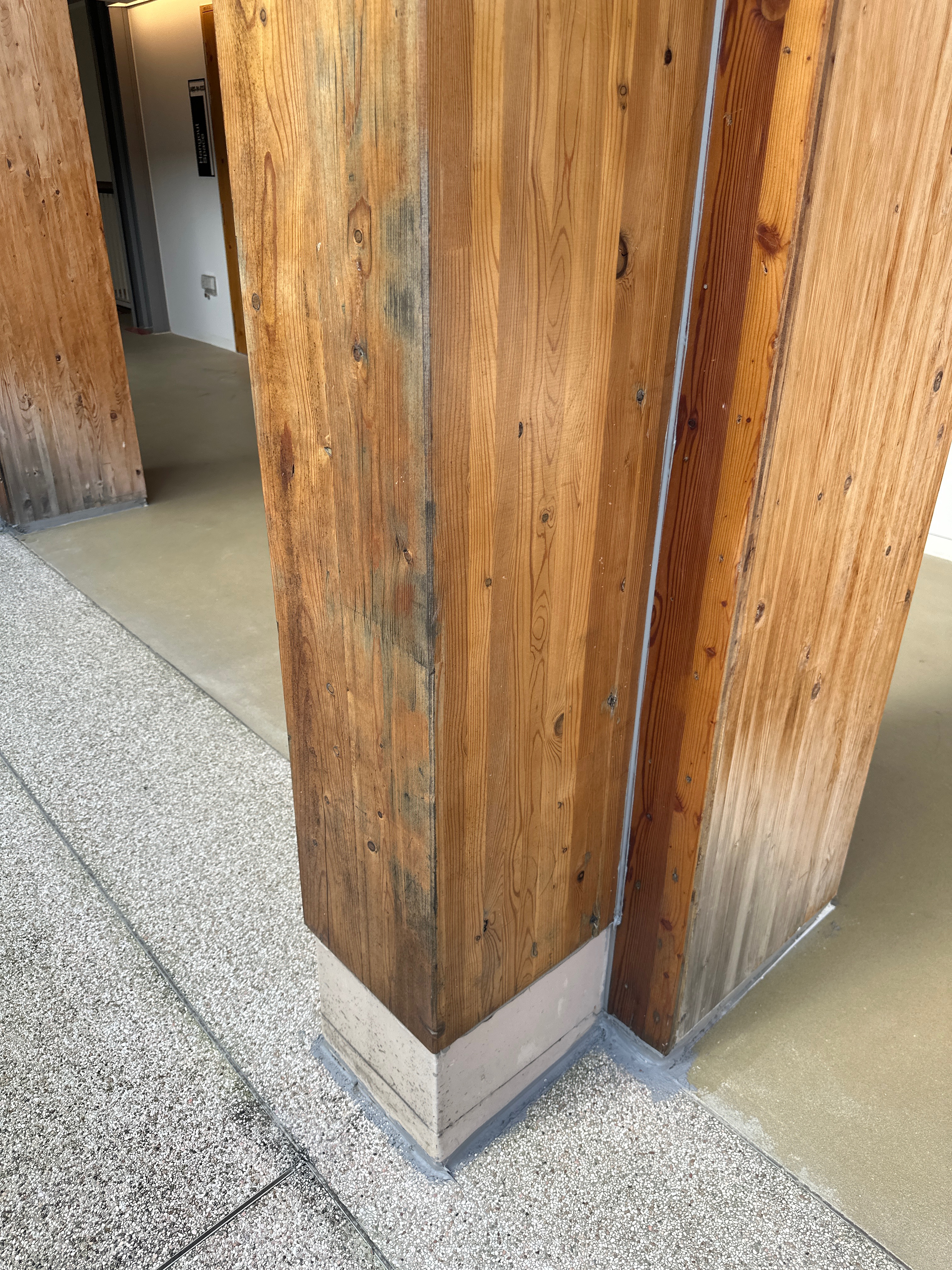 Photo via Ruth Chai
Photo via Ruth Chai
To ensure minimal resurgence of mould, air-conditioner supply grilles in all rooms will be wiped daily as these areas are prone to condensation.
Spaces and corners that have low airflow will be cleaned monthly.
Both exterior and interior building surfaces, including structural pillars, will be inspected, cleaned, and maintained regularly.
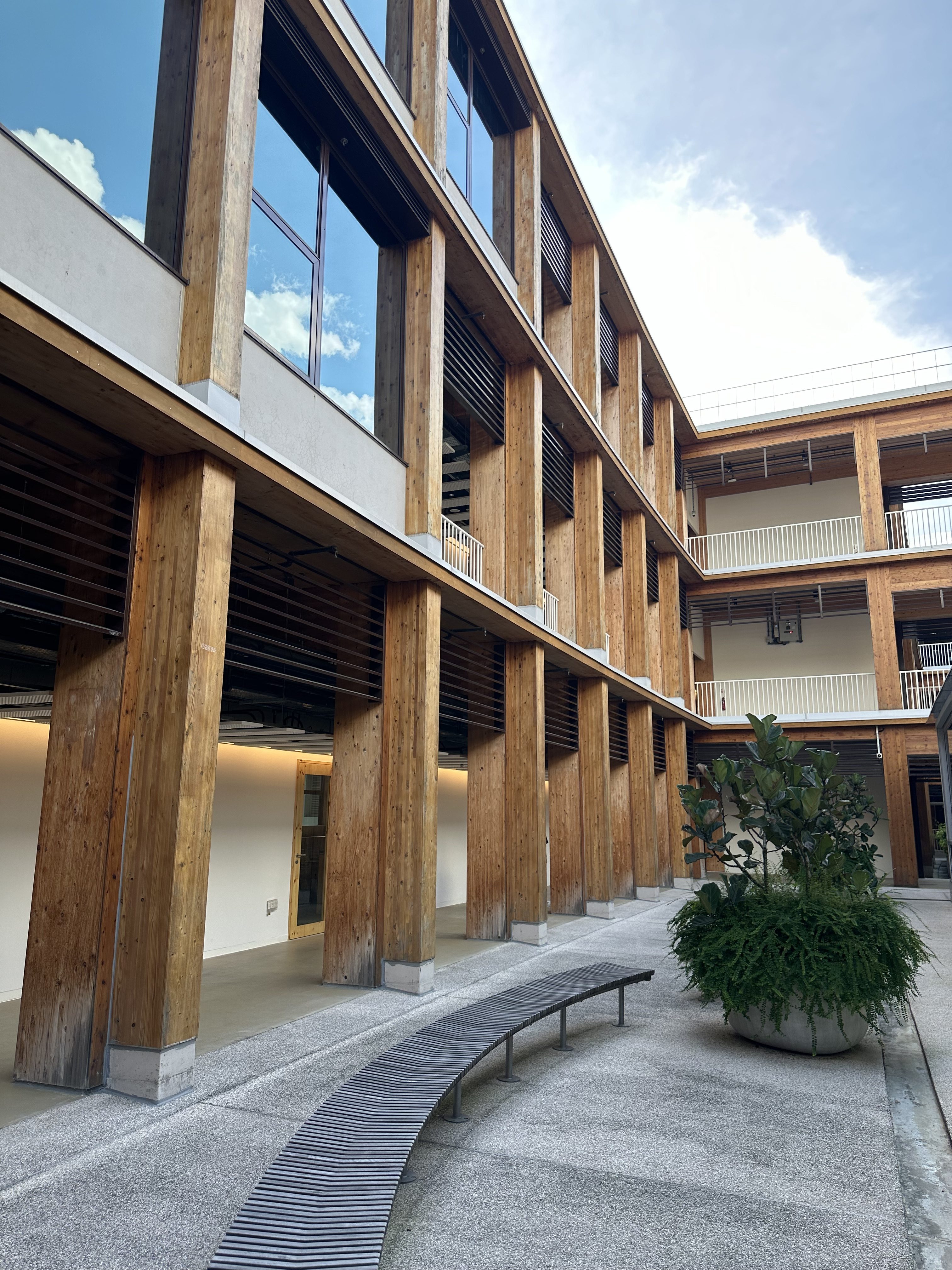 Photo via Ruth Chai
Photo via Ruth Chai
Any visible cracks in wood surfaces will also be patched and resealed to prevent moisture penetration and subsequent mould growth.
"We want to provide a safe environment for our faculty, staff and students working and studying at Gaia, and have taken immediate steps to remediate the rooms and facilities affected by mould," said NTU Chief Development and Facilities Management Officer Siew Hoong Kit.
Related story
Top photo via Ruth Chai

MORE STORIES
















